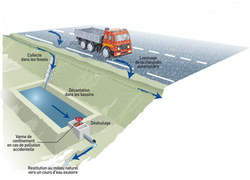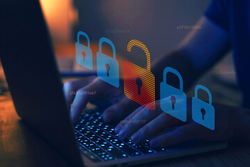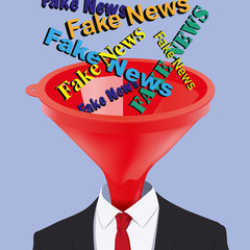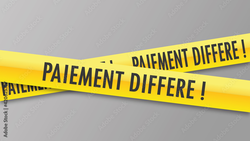Compliance: at the moment
Feb. 20, 2022
Compliance: at the moment

Feb. 15, 2022
Compliance: at the moment

Feb. 11, 2022
Compliance: at the moment

Jan. 20, 2022
Compliance: at the moment

Jan. 15, 2022
Compliance: at the moment

Nov. 28, 2021
Compliance: at the moment

Nov. 14, 2021
Compliance: at the moment

Oct. 26, 2021
Compliance: at the moment
Oct. 23, 2021
Compliance: at the moment

Oct. 22, 2021
Compliance: at the moment
Oct. 21, 2021
Compliance: at the moment

Oct. 12, 2021
Compliance: at the moment
Oct. 10, 2021
Compliance: at the moment
Oct. 9, 2021
Compliance: at the moment
Oct. 7, 2021
Compliance: at the moment
Oct. 5, 2021
Compliance: at the moment

Oct. 3, 2021
Compliance: at the moment
Sept. 10, 2021
Compliance: at the moment

► La lecture de la ➡️📝 Convention judiciaire d'intérêt public signée le 26 août 2021 par le procureur de la République financier près le tribunal judiciaire de Paris et la filiale française de la banque d'affaire américaine JP Morgan, validée par l'➡️📝Ordonnance rendue par le Président du Tribunal judiciaire de Paris du 2 septembre 2021, est instructive à plusieurs titres.
________
On peut la lire sur le fond et au regard croisé du droit fiscal et du droit des sociétés, entre l'abus de droit et le montage, puisque les faits reprochés concernant un montage très sophistiqué élaboré par les cadres de l'entreprise Wendel ayant abouti à n'être pas soumis à une taxation immédiate, ce à l'égard de quoi l'administration fiscale a réagi en demandant la condamnation des intérêts pour fraude fiscale.
Prenons plutôt du côté de la Convention judiciaire d'intérêt public (CJIP). Elle résulte de discussion entre le Parquet national financier et la banque d'affaire qui a conseillé les cadres dirigeants de Wendel dans "la phase finale des discussions avec les concepteurs de l'opération" et qui a prêté les fonds.
Celle-ci souligne qu'elle n'était pas partie prenante dans le montage et qu'on lui avait soutenu que le risque de requalification en abus de droit était relativement faible. Qu'il ne convient pas de prononcer d'amende à son endroit, puisqu'elle n'a quant à elle tiré aucun profit fiscal de tout cela.
Le ministère public estime que, même si la banque n'a pas été impliquée dans la construction de l'opération, il faut retenir la qualification pénale de "complicité de fraude fiscale par fourniture de moyens".
Il passe donc directement au calcul de l'amende d'intérêt public : il le calcule, selon les termes de l'article 41-1-2 du Code de procédure pénale qui se réfère aux "avantages tirés des manquements", et ce dans la limite de 30% du chiffre d'affaires
I. LE MANIEMENT DU PRINCIPE DE PROPORTIONNALITE DANS LE CALCUL DE L'AMENDE D'INTERET PUBLIC
Le principe de proportionnalité a un rôle central dans le Droit de la compliance. Il requiert que les différents instruments, par exemple les punitions, soient non pas tant limités mais au contraire utilisés pour atteindre efficacement leur but, par exemple dissuader les auteurs de recommencer et les opérateurs qui observent la sanction d'en être dissuadés pareillement (sur le principe de proportionnalité comme technique d'efficacité de la Compliance, v. Frison-Roche, M.-A., ➡️📝Proportionnalité et Compliance, 2021) : c'est pourquoi l'amende d'intérêt public doit être proportionnée à l'avantage retiré du manquement.
Puisque la Convention judiciaire d'intérêt public a pour but de clore l'affaire avant sa phase proprement juridique, le procureur n'étant pas un juge, elle n'a pas pour fonction principale de punir mais de réparer le dommage causé à la société et aux victimes et d'améliorer la situation à l'avenir par la technique du programme de compliance, en évitant le coût de la procédure. Ainsi la Convention judiciaire d'intérêt public fut présentée comme une sophistication du pouvoir d'opportunité des poursuite, le procureur maniant toujours son pouvoir de poursuivre, et donc aussi de ne pas poursuite, sans entamer l'apanage du juge du siège : le pouvoir de juger, le pouvoir de punir.
Il s'agit aussi de créer un effet dissuasif, pour que les tiers voient qu'il n'est pas avantageux de violer la loi, le procureur représentant la loi, la société et l'Etat, le Droit de la Compliance reposant sur la rationalité des acteurs, qui calculent l'opportunité de se conformer à la règle ou de la méconnaître, et non pas sur leur amour de la loi (Sur l'analyse économique des deux branches de cette alternative, qui fait par ailleurs les délices des philosophes, v. Benzoni, L. et Deffains, B., ➡️📝 Approche économique des outils de la Compliance : Finalité, effectivité et mesure de la compliance subie et choisie, 2021).
C'est pourquoi l'article 41-2-1 du Code de procédure pénale dispose donc : " Le montant de cette amende est fixé de manière proportionnée aux avantages tirés des manquements constatés".
Dans la Convention du 26 août 2021 liant la banque Morgan Stanley, le parquet fait bien référence au ratio de 30% chiffre d'affaire d 'affaire de la banque, à savoir environ 30 millions de dollars, mais c'est aux avantages financiers non pas retirés par elle mais retirés par ses clients, à savoir environ 78 millions de dollars qu'il se réfère pour calculer la proportionnalité de l'amende.
A partir de ce moment-là, le parquet fait jouer deux autres critères non visés par les textes, l'un classique et en faveur de l'entreprise, à savoir sa faible implication dans le montage, et l'autre moins classique et considéré comme une circonstance aggravante pour l'entreprise, critère t souvent visé en analyse économique du droit, à savoir la "complexité du montage" qui est visée en ces termes, dans le point 36 : "la complexité du montage fiscal justifie la prise en compte d'un facteur aggravant sa responsabilité". En effet la complexité d'une opération la rend plus difficilement détectable pour le gardien de la règle et il faut donc sanctionner plus fort.
De cela, l'on peut souligner deux choses :
1️⃣L'interprétation que le parquet a de l'article 41-1-2 du Code de procédure pénale, la proportionnalité ne devrait donc pas viser que le profit retiré par la personne partie à la convention judiciaire d'intérêt public ; cela se conçoit car, même si l'interprétation littérale demeure la règle en matière pénale, puisqu'il s'agit encore d'une amende, cette référence à l'avantage retiré se superposant aux considérations classiques que sont l'implication (c'est-à-dire la faute...) et la difficulté à détecter ;
2️⃣ L'avantage retiré peut n'être pas celui de la personne partie à la convention judiciaire public mais, comme ici, l'avantage retiré par les intéressés principaux, clients de la banque.
C'est aller au-delà du texte, et dans sa lettre et dans son esprit, qui ne visait sans doute que les avantages retirés par la personne partie à la Convention. Cela aboutit à un amende de 25 millions, proche du maximum de 31 millions encourus.
Cela rejoint certes la définition de ce qu'est la complicité, puisque le complice encourt la même peine que l'auteur principal. C'est particulièrement sévère de faire jouer ce mécanisme qui va chercher dans les profits d'un autre le calcul de la sanction ainsi supportée et le principe de proportionnalité est d'un autre esprit que celui-ci.
Lors de l'audience qui s'est déroulée le 2 septembre 2021 devant le président du Tribunal judiciaire de Paris qui doit valider la Convention, l'établissement bancaire a indiqué n'avoir aucune remarque à formuler tandis que l'Ordonnance de validation indique que le ministère public "a été en mesure d'expliquer le calcul des avantages tirés des agissements constatés".
L'on ne sait pas à cette lecture si ce sont les agissements de la banque contrainte de payer l'amende d'intérêt public, tandis que ce sont les avantages d'un tiers, la formulation très générale masquant la distinction des deux qui pourtant caractérise ici la situation.
Elle pourrait être d'importance dans de nombreux cas pour tous ceux qui "conseillent", "aident", "accompagnent", etc.
Mais est-ce que cela est conforme à ce qu'est la proportionnalité en matière de sanction ? Même s'il est difficile de cerner cette notion, il y a cette idée que la personne sanctionnée doit pouvoir supporter ce qu'on lui inflige, que cela ne doit pas être au-dessus de ces forces. C'est bien pour cela qu'au dehors de tout texte la jurisprudence a annulé les engagements "disproportionnés", parce qu'ils excèdent ce qu'une personne peut endurer, même si son consentement n'a pas été vicié
II. 10 ANS APRES, LA NON-OUVERTURE D'UNE PROCEDURE PAR LE PROCUREUR, A LA SUGGESTION DU JUGE D'INTRUCTION
Cette sévérité s'explique aussi par le temps qui s'est écoulé depuis les faits qui remontent à 2004, la plainte formée au pénal par l'administration fiscale datant de 2012.
Après un arrêt de cassation, annulation une partie de la procédure, c'est le juge d'instruction qui, après de multiples investigation, a retransmis au procureur le dossier pour qu'une CJIP soit envisagée.
Cette procédure a souvent été présentée comme ce qui permet d'éviter efficacement le coût et la lenteur des procédures.
L'on dira qu'il s'agit là d'un contre-exemple, puisque c'est l'Ex Post, par la volonté d'un juge d'instruction, qui aboutira, environ 10 ans, à finalement ne pas ouvrir le dossier.
_____
► s'inscrire à la Newsletter MaFR ComplianceTech®
Cet article vise dans son 1° : "Verser une amende d'intérêt public au Trésor public. Le montant de cette amende est fixé de manière proportionnée aux avantages tirés des manquements constatés, dans la limite de 30 % du chiffre d'affaires moyen annuel calculé sur les trois derniers chiffres d'affaires annuels connus à la date du constat de ces manquements. Son versement peut être échelonné, selon un échéancier fixé par le procureur de la République, sur une période qui ne peut être supérieure à un an et qui est précisée par la convention."
V. par ex. Com. 4 nov. 2020, n°18-2524, Petites Affiches, 26 février 2021, obs. S. Andjechairi-Tribillac sur la nullité d'une clause de non-concurrence disproportionnée, ce qui peut être évoquée par voie d'exception.
Sept. 8, 2021
Compliance: at the moment

► La question de l'aptitude à vouloir et à choisir est essentielle dans le Droit de la Compliance dans son existence même. Si cela n'est pas requis, parce que tout ne serait que performance et addition de connaissance, alors il n'est pas besoin d'êtres humains pour manier les règles de compliance, cela devrait pouvoir être confié à des algorithmes, les robots étant toujours plus performants que les humains pour stocker les informations et les croiser. Cela est très souvent proposé. Si en plus les algorithmes peuvent repérer les manquements, voire les "juger", alors il conviendrait de retirer la Compliance des mains humains pour les convier aux machines. La question du rapport entre Compliance et Intelligence artificielle est très discutée, dans laquelle les intérêts économiques ont leur part, puisque la vente des outils technologiques dépend aussi de la place que le système de Compliance lui fera.
____
Pour alimenter la réflexion, allons du côté de la propriété intellectuelle, dans un cas qui se déroule actuellement : les algorithmes peuvent-ils être reconnus comme des "créateurs" ? Car s'ils peuvent l'être, les brevets pouvant leur être délivrés, alors - qui peut le plus peut le moins -
➡️📝Aux Etats-Unis, dans l'Etat de Virginie, une audience s'est déroulée en avril 2021, d'où il résulte que la juge à la fois semble admettre que l'algorithme est doté de créativité mais pose qu'en l'état des textes ce fait est nouveau et qu'il n'a pas encore été intégré par la législation, ce qui ne permet pas d'en tirer des conséquences juridiques.
Pourtant la même juge n'a pas persisté dans ce sens et dans ➡️📝 un jugement du 2 septembre 2021 a rejeté la demande d'attribution de droit de propriété intellectuelle au bénéfice de l'algorithme pour la raison suivante : en admettant qu'un algorithme ait la "créativité" suffisante pour remplir la condition requise pour recevoir la protection attachée au mécanisme du brevet, encore faudrait-il qu'un serment puisse être fait de respect de l'Etat de Droit.
Or, cette dimension du serment, qui n'est pas que mécanique, le caractère non-humain de l'algorithme exclut que celui-ci puisse jamais l'exprimer.
C'est sur cette base que la juge exclut par principe la brevetabilité des innovations faites par un algorithme.
____
Si l'on transpose une telle problématique et un tel raisonnement aux questions de Compliance, l'analogie est très forte.
En effet, la collecte des informations, leur mise en corrélation, les alertes, les suivis des comportements, etc. sont sans doute mieux assurées par de algorithmes que par des êtres humains. C'est pourquoi
Sept. 3, 2021
Compliance: at the moment

An August 10, 2021 New York Times article chronicles the relationship presented as "tumultuous" between President Biden and Facebook, the president, in person or through his closest administration, blaming Mark Zuckerberg, in person or through his closest collaborators, for the Facebook insufficient action against vaccine misinformation: ➡️📝Inside the White House Facebook Rift Over Vaccine Misinformation.
The article insists on the opposition between the two entities: " Frustrations grew behind the scenes among top leaders on both sides, potentially hurting the government's efforts to overcome the pandemic ".
And reports many facts for this conclusion.
But is it not possible to propose another reading of these events?
A reading that would be more strategic and more optimistic with regard to what is the obligation of digital operators obliged by Compliance Law.
____
In fact, if we come back to the subject itself, it is a question of fighting against disinformation, including that which is raging about vaccination against Covid (the causes of the spread of the virus, its modes of spread and the effects of different vaccines, in particular) is just one example.
To stem the health crisis, public policies for economic issues do not encounter the same major difficulty as public policies for health care: disinformation.
On this major question, see the presentation of the May 2021 colloquium organized by the Journal of Regulation & Compliance (JoRC) and the Faculty of Law of Montpellier on ➡️📅 Public Norms and Compliance in time of Crisis: Monumental Goals put a test, the work being the basis of contributions in the book ➡️📘 Compliance Monumental Goals.
Faced with the spread of disinformation, especially during a health crisis, not only the jurisdictional Ex Post, certainly legitimate to sanction disinformation, is not enough in such a fight but the administrative action is not enough either. because the digital space has for characteristic not so much the novelty of these manipulations (which do not differ from the preceding methods) but their speed of propagation and their dissemination which until now had never reached such dazzling and such dust.
Faced with this, only a mechanism which entrusts, willingly or by force (the " free will" referring to the points of contact between Compliance Law and Corporate Social Responsibility, the "force" referring to the repression strongly present in the Compliance Law) to companies in a position to do something (what the banking sector referred to as "systemic firms" and which can be qualified more generally as "crucial companies" (➡️📝 Frisian- Roche, M.-A., "Proposition for a notion: the "Crucial Operator", 2006), the function of blocking or even destroying the crucible of disinformation is concretely possible (➡️📓 Frison-Roche, M.- A., The contribution of Compliance Law in the Governance of Interne, 2019).
But many protest before such a mission which, under the pretext of "necessity" and under the guise of "weight" given to these companies, also gives them considerable powers over people: thus many have criticized the closure of Donald Trump's account as being an illegitimate political act and many saw the May 5, 2021 Facebook Oversight Board decision as an intolerable takeover of power, with the company allowing itself to become a complete legal system on its own : for one analysis of this very important decision, and commented on, often in a severe manner, but for a more approving approach because in the perspective of Compliance Law, the internalisation of repressive and jurisdictional functions is more of a principle: ➡️📧 " By its decision of May 5, 2021, the Oversight Board imposed a Compliance program on Facebook, May 2021; for a perspective that remains critical ➡️📝Heymann, J.," The Legal Nature of the "Supreme Court" of Facebook ", in➡️📘 Compliance Jurisdictionalisation, 2022).
These criticisms are on several levels; they can be summarized as follows:
- a company maintaining a platform on which contents may be published by anyone and controlling these contents would exercise "censorship", which would be unacceptable with regard to the freedom of speech;
- a company controlling the contents carries out an activity of judgment, while only a judge or at least a public authority could do it, therefore it would be unacceptable;
- a company controlling contents would exercise control over what is socially admissible, which would be a political activity, and a company is not politically legitimate to govern us.
These arguments are solid, especially from a judicial perspective.
Even if it is possible to articulate the fight against the disinformation which rages thanks to the digital novelty (), and the constitutional freedom of expression (Minow, M., "How the government can support a free press and cut disinformation ", 2021), the risk of a weakening by courts, whether American or other, for example in France where judges have criticized the companies powers, even in China where it is in the name of privacy that the new control on the technological sector is taking place ....
If the federal government of the United States, because it wants to carry out its public health policy and has little influence on the policies of the states, some of which are hostile to vaccination or believe that all of this is there Everyone's business, wants Facebook to exercise its power to deactivate the accounts of those who practice disinformation, especially in vaccine matters, or even exercise it in political matters (Timothy Snyder having shown that the practice of disinformation in the matter put endangering the American political system itself: ➡️📧 "Listening to Timothy Snyder: the United States like Europe defend democracy, but Europe uses Compliance Law more for that", June 2021), then it is necessary but enough that the Government accuses Facebook of "killing people" by not doing it.
So, the Government allows the company to do it.
This is what President Biden has just done.
This is to be compared with the position taken in May 2021 by the US federal administration allowing companies to require employees to both return to work on sites and be vaccinated. This was already a sign that it is indeed the federal administration which, in order to make its public vaccination policy "effective", relies on companies, with the necessary powers for them to play their role: see the analysis of this communication from the US Equal Employment Opportunity Commission (EEOC) of May 28, 2021 ➡️📧 "In Compliance Law, the political authority must clearly tell the company the extent of its power; fault from which the company will pass from the status of executor to that of Legislator ", June 2021.
It is therefore not an "opposition" but a strategic alliance.
Moreover, Facebook has just deactivated a series of accounts which systematically practice disinformation in matters of vaccination.
The fact that the President of the United States characterized their inaction as "murder" makes it much easier for them when their action will be challenged in court. Because in front of a judge vis-a-vis whom it will be reproached for violating, by its too offensive action, the freedoms of the people the company will be able to take advantage of the fact that it was made accused of "murder" for not having had enough offensive action, and this by the Head of State.
We are legally close to the hypothesis of "the order given by the legitimate authority".
This reinforces an opinion expressed in March 2020 according to which Facebook, when it refers people to public information centers for the fight against the virus, is not acting either as a publisher or as part of its social responsibility but executes purely and simply its obligations arising from Compliance Law: ➡️📝Frison-Roche, M.-A., "Facebook, Facebook, le coronavirus et la Compliance", March 2020.
In addition, as in any Compliance Law mechanism, such execution of their Compliance obligation by Facebook and all others who follow the exchanges between the crucial digital company and the Federal Executive, is supervised by the Regulatory Authorities, administrative authorities before which the operator can be prosecuted for failure, for example for not only for having done too much but also for having not done enough.
This is particularly true in France, where the Conseil Supérieur de l'Audiovisuel - CSA French Superior Audiovisual Council) supervises digital operators in their obligations to limit the spread of infox, specifically questioning operators on the due diligence carried out and the results obtained, a specific annual report being published each year (see the report published on July 30, 2020 on the "application and effectiveness" of the fight against disinformation to be carried out by the platforms, in its English version).
________
► s'inscrire à la Newsletter MaFR ComplianceTech®
Sept. 2, 2021
Compliance: at the moment

Le Droit s'appuie sur des définitions, permettant de classer les mots dans des catégories lesquelles déclenchent des régimes juridiques.
Ainsi le mot "paiement" a pour définition d'être l'exécution d'une obligation.
Il est si usuel que cette exécution s'opère en monétaire que le langage courant associe au "paiement" le transfert d'une monnaie au bénéfice du créancier.
Ce premier raccourci ayant été fait, cela renvoie à l'activité bancaire, la monnaie renvoyant aux émetteurs de monnaie que sont les Banquiers centraux et les banques, lesquelles en tant qu'elles sont aussi Etablissement de crédit accroissant la masse monétaire par l'attribution de crédits.
Mais la pratique du "paiement fractionné" se diffère du crédit en tant qu'elle ne constitue pas une
C'est pourquoi, de la même façon que les entreprises technologiques se sont développées dans les technologies de paiement sans pour autant être soumises aux contraintes régulatoires visant les opérateurs bancaires et financiers, ces entreprises technologiques commencent à se déployer dans la technologie du "paiement fractionné".
Par exemple PayPal, mais également Apple proposent un service technologique de "paiement fractionné" (v. par exemple Apple s'allie à Goldman Sachs pour lancer un service de paiement fractionné).
____
Du point de vue du Droit, la qualification était jusqu'ici considérée comme une alternative à deux branches un paiement fractionné peut être considéré soit comme une modalité de l'exécution (une "facilité") et ne justifie donc pas la lourdeur du Droit du crédit et des monopoles régulés associés, soit comme un crédit, ce qui renvoie au Droit de la Régulation.
I. PAYER, C'EST EXECUTER SON OBLIGATION, SOUVENT PAR L'UTILISATION D'UN FRAGMENT DE LA MASSE MONETAIRE
Parce qu'il est plus simple de prendre des seuils, la législation française a fixé que jusqu'à 90% un "paiement fractionné" n'est qu'une modalité du paiement, ce dispositif entre les parties devenant un crédit (avec la protection de l'emprunteur et la régulation du prêteur) au-delà.
Mais les faits font apparaître une troisième branche dans l'alternative : alors que le paiement immédiat peut s'opérer sans aucun transfert d'information du débiteur vers le créancier (ce qui constitue une des raisons pour lesquels billets et pièces constituent une spécificité, soit louée comme protectrice des libertés soit critiquée comme véhicule d'activités contraire à l'ordre public), le paiement fractionné ne peut s'opérer que par la transmission par le débiteur d'informations personnelles.
Cela peut n'avoir pas d'utilité pour le créancier qui a déjà des informations sur son débiteur ou à tout le moins représente une utilité accessoire par rapport à l'objet principal qu'est l'échange économique lui-même, qui a déclenché l'obligation du débiteur de payer en l'échange du bénéfice de la prestation qui a rendu son cocontractant créancier.
Mais si l'opération du "paiement fractionné" est externalisée vers un prestataire technique, que cela continue de n'être pas un crédit (sans la Régulation qui va avec) est pris en charge par une entreprise dont le seul objet est alors l'organisation technique de cet étirement dans le temps.
L'on pourrait considérer que le seul objet de Régulation est celui de la Régulation du crédit, c'est-à-dire le risque systémique et la protection des consommateurs contre le surendettement.
Mais ici l'on peut considérer que ces très grandes entreprises, comme Apple, s'intéressent à ce service parce que leur objectif est la collecte la plus fine et croisée possible de données : or, les données, ces micro-informations d'un débiteur sont très précieuses.
Parce qu'il faut "repenser le monde à partir de la notion de donnée", ce à quoi nous sommes encore très malhabiles, la définition du paiement peut alors changer dans une troisième branche de l'alternative.
II. PAYER, C'EST DONNER DE L'INFORMATION SUR SOI-MEME : LE "DEBITEUR" APPORTE DE CE FAIT DE LA VALEUR. SI CET APPORT DEVIENT PRINCIPAL, DE QUI EST-IL LE CREANCIER ?
Dans une opération de "paiement fragmenté", si cela est pris en charge non plus par le cocontractant de l'opération économique qui a engendré l'obligation de payer ni par un prestataire choisi par le débiteur mais par un prestataire choisi par le créancier, qui offre ce fragmentation le plus souvent présenté comme "gratuit", la question est alors de savoir si ce prestataire peut s'approprier les données personnelles du débiteur sans limite, puisqu'il ne s'agit pas d'un crédit.
S'il s'agit d'un opérateur numérique par ailleurs très puissant, qui peut connecter ces informations de solvabilité et d'usage, cela donne à la fois une facilité dans les achats dans la vie quotidienne de chacun et un croisement des informations, tel qu'il est autorisé et promu en Chine (où le désir d'achat et l'obtention d'un crédit à la consommation peuvent être exprimés concomitamment).
En France, le Conseil constitutionnel avait invalidé la loi qui avait validé la mise en place d'un "fichier positif" des clients bancaires solvables pour faciliter l'accès au crédit, le Conseil estimant que si le risque systémique justifie la mise en place de fichiers des clients bancaires fragiles, protégés par une interdiction bancaire, l'absence d'un tel risque exclue la mise en place d'un fichier d'informations concernant les personnes.
Mais c'était en France et c'était il y a longtemps.
________
Sept. 1, 2021
Compliance: at the moment

► An article published on July 14, 2021 by The Wall Street Journal, "Brain Implant Lets Man 'Speak' After Being Silent for More Than a Decade", relays the information that it is now possible, on an experimental basis, to implant in the brain a device allowing a person deprived by a neurological accident to speak to be able to express himself again by writing his thoughts directly on a computer screen, on which the words thought are displayed in sentences.
____
Several years of "fundamental" research, notably on the part of Facebook, which, in particular by subsidizing the French professor of neurosciences Stanislas Dehaene, in a comparison between the learning development of the brain and the development of "deep learning", have been successful. to allow people who have lost the use of the voice to write directly on screens without this vocal medium by going directly from thought to writing.
This leads to three reflections, putting Law and Technology at the center:
1. at first glance, speech being only a medium between thought and expression, it would be conceivable to do without it;
2. However, it is required to draw a parallel with the new technology of "emotional recognition" by which thoughts are accessible to third parties, which thwarts the fundamental right to make one's thoughts inaccessible to others;
The news has shown precisely that this technology, making possible to capture the true thoughts of others despite feigned facial expressions, poses a problem with regard to the fundamental right to lie or to remain silent (see in this regard 📧 MaFR, "Compliance and Ethics Technologies may be inadmissible "in themselves" and conceiving of their "ethical use" is therefore not admissible: practical case on the control of workers' emotions ").
3. By anticipating the possible use of this new technology and the legal reaction to this potentiality, the same question raises whether, per se, such an implantation of a tool for "capturing thoughts directly in the brain" to obtain their "direct translation on a screen" should not be considered as the equivalent of capturing thoughts, just as infringing on everyone's fundamental right to keep their thoughts inaccessible.
Here again, the fact that in one or two cases, this made it possible to cure a person does not legitimize the technology in itself.
Likewise, the fact that the person "consents" is not sufficient to legitimize what may be a per se attack on the dignity of the human person if the technology has the effect of capturing thoughts with a loss of control. the person concerned. For the moment, in the description given by the researchers according to the article which relates the innovation, it is the transmitter who controls the technology but the elimination of the medium of speech or writing deserves to be conceptualized, in the loss of isolation of the individual, isolation to which the Western tradition has often associated Freedom.
_____
Aug. 31, 2021
Compliance: at the moment

►Par un article publié le 13 juillet 2021, "Targeted ads isolate and divide us even when they’re not political – new research" des chercheurs ayant mené une étude à propos d'intelligence artificielle et d'éthique , rendent compte des résultats obtenus. Il ressort de cette étude empirique montre que les technologies, mises au point à des fins politiques pour capter les votes afin de faire élire Trump ou pour obtenir un vote positif pour le Brexit, utilisées à des fins commerciales, auraient deux effets sur nous : en premier lieu elles nous isolent ; en second lieu elles nous opposent.
____
Le seul lien social qui a donc vocation à avoir serait donc l'agression.
Certes l'usage ainsi fait de nos informations personnelles, auquel nous "consentons" tous, que cela soit pour obtenir notre adhésion à des discours ou à des produits, casse ce qu'Aristote appelait "l'amitiés" comme socle de la Cité Politique.
L'on mesure que la notion de "consentement", qui est une notion juridique, relativement périphérique dans le Droit des Obligations, que beaucoup voudraient mettre comme l'alpha et l'omega, ne nous protège en rien de cette destruction de nous-même et des autres, de cette perspective de la Cité.
Il est important de penser la régulation de la technologie, sur laquelle est construit l'espace digital sur une autre notion que le "consentement".
C'est pourquoi le Droit de la Compliance, qui n'est pas construit sur le "consentement", est la branche du Droit de l'avenir.
#droit #numérique #amitié #consentement #haine #politique
Aug. 30, 2021
Compliance: at the moment

► An article from March 3, 2021, Smile for the camera: the dark side of China's emotion-recognition tech, then an article from June 16, 2021, "Every smile you fake" - an AI emotion - recognition system can assess how "happy" China's workers are in the office describes how a new technology of emotional recognition is able, through what will soon be out of fashion to call "facial recognition", to distinguish a smile that reflects a mind state of real satisfaction from a smile which does not correspond to it. This allows the employer to measure the suitability of the human being for his or her work. It is promised that it will be used in an ethical way, to improve well-being at work. But isn't it in itself that this technology is incompatible with any compensation through ethical support?
The technology developed by a Chinese technology company and acquired by other Chinese companies with many employees, allows to have information on the actual state of mind of the person through and beyond his or her facial expressions and bodily behavior.
Previously, the technology of emotional recognition had been developed to ensure security, by fighting against people with hostile plans, public authorities using it for example in the controls at airports to detect the criminal plans which some passengers could have.
It is now affirmed that it is not about fighting against some evil people ("dangerousness") to protect the group before the act is committed ("social defense”) but that it is about helping all workers.
Indeed, the use that will be made of it will be ethical, because first the people who work for these Chinese companies with global activity, like Huawaï, do it freely and have accepted the operation of these artificial intelligence tools (which is not the case with people who travel, control being then a kind of necessary evil that they do not have to accept, which is imposed on them for the protection of the group), but even and above all, the purpose is itself ethical: if it turns out that the person does not feel well at work, that they are not happy there, even before they are perhaps aware, the company can assist.
Let’s take this practical case from the perspective of Law and let’s imagine that it is contested before a judge applying the principles of Western Law.
Would this be acceptable?
No, and for three reasons.
1. An "ethical use" cannot justify an unethical process in itself
2. The first freedoms are negative
3. "Consent" should not be the only principle governing the technological and digital space
I. AN "ETHICAL USE" CAN NEVER LEGITIMATE AN UNETHICAL PROCESS IN ITSELF
These unethical processes in themselves cannot be made "acceptable" by an "ethical use" which will be made of them.
This principle was especially reminded by Sylviane Agacinski in bioethics: if one cannot dispose of another through a disposition of his or her body which makes his or her very person available (see not. Agacinski, S., ➡️📗Le tiers-corps. Réflexions sur le don d’organes, 2018).
Except to make the person reduced to the thing that his or her body is, which is not ethically admissible in itself, that is excluded, and Law is there in order to this is not possible.
This is even why the legal notion of "person", which is not a notion that goes without saying, which is a notion built by Western thought, acts as a bulwark so that human beings cannot be fully available to others, for example by placing their bodies on the market (see Frison-Roche, M.-A., ➡️📝To protect human beings, the ethical imperative of the legal notion of person, 2018). This is why, for example, as Sylviane Agacinski emphasizes, there is no ethical slavery (a slave who cannot be beaten, who must be well fed, etc.).
That the human being agrees ("and what about if it pleases me to be beaten?") does not change anything.
II. THE FIRST FREEDOM IS THE ONE TO SAY NO, FOR EXAMPLE BY REFUSING TO REVEAL YOUR EMOTIONS: FOR EXAMPLE HIDING IF YOU ARE HAPPY OR NOT TO WORK
The first freedom is not positive (being free to say Yes); it is negative (being free to say No). For example, the freedom of marriage is having the freedom not to marry before having the freedom to marry: if one does not have the freedom not to marry, then the freedom to marry loses any value. Likewise, the freedom to contract implies the freedom not to contract, etc.
Thus, freedom in the company can take the form of freedom of speech, which allows people, according to procedures established by Law, to express their emotions, for example their anger or their disapproval, through the strike.
But this freedom of speech, which is a positive freedom, has no value unless the worker has the fundamental freedom not to express his or her emotions. For example if he or she is not happy with his or her job, because he or she does not appreciate what he or she does, or he or she does not like the place where he or she works, or he or she does not like people with whom he or she works, his or her freedom of speech demands that he or she have the right not to express it.
If the employer has a tool that allows him or her to obtain information about what the worker likes and dislikes, then the employee loses this first freedom.
In the Western legal order, we must be able to consider that it is at the constitutional level that the infringement is carried out through Law of Persons (on the intimacy between the Law of Persons and the Constitutional Law, see Marais , A., ➡️📕Le Droit des personnes, 2021).
III. CONSENT SHOULD NOT BE THE ONLY PRINCIPLE GOVERNING THE TECHNOLOGICAL AND DIGITAL SPACE
We could consider that the case of the company is different from the case of the controls operated by the State for the monitoring of airports, because in the first case observed people are consenting.
"Consent" is today the central notion, often presented as the future of what everyone wants: the "regulation" of technology, especially when it takes the form of algorithms ("artificial intelligence"), especially in digital space.
"Consent" would allow "ethical use" and could establish the whole (on these issues, see Frison-Roche, M.-A., ➡️📝Having a good behavior in the digital space, 2019).
"Consent" is a notion from which Law is today moving away in Law of Persons, in particular as regards the "consent" given by adolescents on the availability of their body, but not yet on digital.
No doubt because in Contract Law, "consent" is almost synonymous with "free will", whereas they must be distinguished (see Frison-Roche, M.-A., ➡️📝Remarques sur la distinction entre la volonté et le consentement en Droit des contrats, 1995).
But we see through this case, which precisely takes place in China, that "consent" is in Law as elsewhere a sign of submission. It is only in a probative way that it can constitute proof of a free will; this proof must not turn into an irrebuttable presumption.
The Data Regulatory Authorities (for example in France the CNIL) seek to reconstitute this probative link between "consent" and "freedom to say No" so that technology does not allow by "mechanical consents", cut off from any connection with the principle of freedom which protects human beings, from dispossessing themselves (see Frison-Roche, M.-A., Yes to the principle of will, No to pure consents, 2018).
The more the notion of consent will be peripheral, the more human beings will be able to be active and protected.
________
